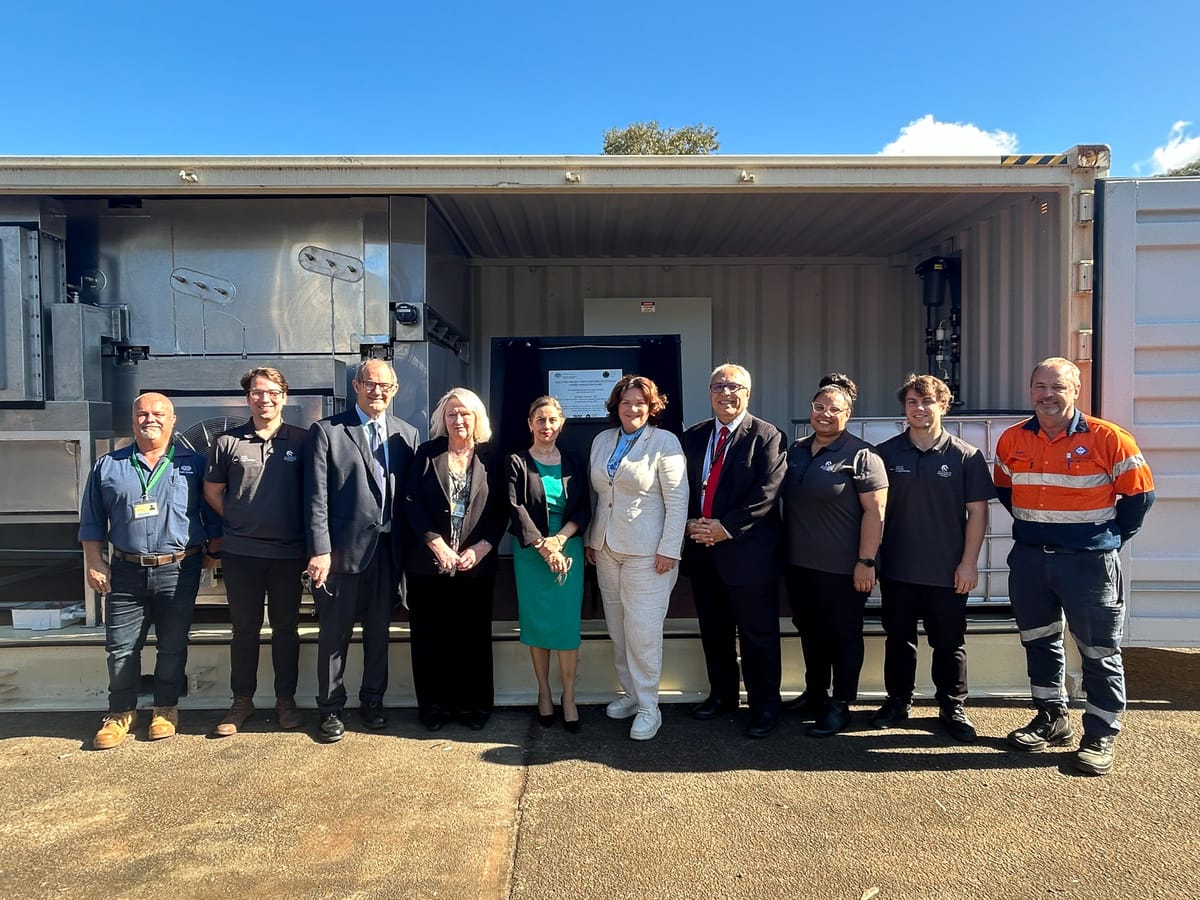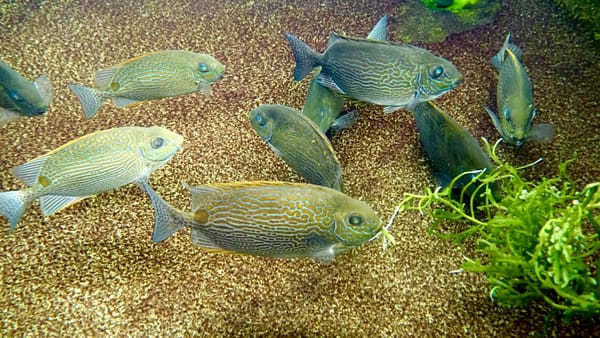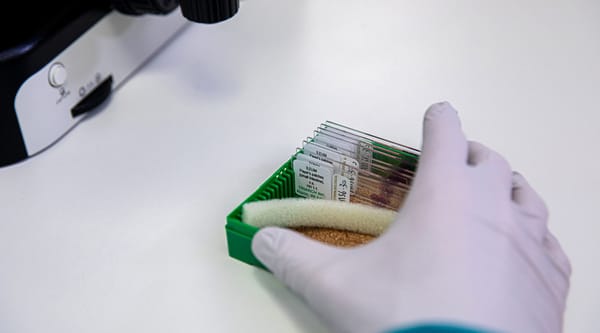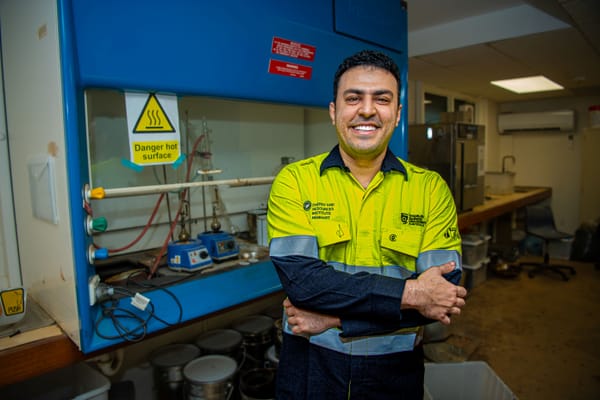Hydro Harvester scales up to quench market thirst
The University of Newcastle has officially unveiled technology capable of harvesting up to 1000 litres of drinkable water per day – from air.

First published by the University of Newcastle
The University of Newcastle has officially unveiled technology capable of harvesting up to 1000 litres of drinkable water per day – from air.
The Hydro Harvester absorbs water from the atmosphere. Solar energy or waste heat is used to produce hot, humid air – the hotter the air, the more water it holds. This hot air is then cooled using ambient air as a heat sink to extract water for drinking or irrigation.
This project received funding from the Australian Government’s Future Drought Fund, enabling Laureate Professor Behdad Moghtaderi and his University of Newcastle team to scale up the Hydro Harvester from pilot form generating 20 L of drinkable water per day to the modular 1000 L/day system it is today.
Nearing market readiness, the 1000 L Hydro Harvester has the capacity to produce enough drinking water to sustain a small rural community or up to 400 people – a potentially lifesaving tool during drought or emergencies.
Chemical engineer and Director of the University’s Centre for Innovative Energy Technologies, Professor Moghtaderi, said unlike commercially available atmospheric water generators (AWGs), the Hydro Harvester worked by heating air instead of cooling it.
“By using solar thermal energy or waste heat, the Hydro Harvester has a lower electrical demand and lower average cost of water per litre than commercial AWGs,” Professor Moghtaderi said.
“Our technology is designed to operate independent of the ambient temperature and humidity, so it’s suitable in virtually any environmental condition, and is cheaper to run.”

The technology behind the Hydro Harvester was demonstrated at a launch event today at Newcastle Institute for Energy and Resources (NIER) – one of the University’s flagship research institutes, focused on working with industry to provide solutions for energy, resources, food and water sectors.
“We look forward to trialling the Hydro Harvester in several remote communities later in the year,” Professor Moghtaderi said.
Ms. Meryl Swanson MP, Member for Paterson, Chair of the House Standing Committee on Agriculture spoke at the event.
“It’s this kind of research and development that will lead the way for increased agriculture applications and help offer water security.
“It’s a phenomenal idea brought to life by the University of Newcastle, and I couldn’t be prouder to be supporting this as a member of the Federal Government.”
Video: YouTube video player
Professor Moghtaderi and his team started developing the Hydro Harvester technology in 2018. With the 1000 L model now complete, he said the Hydro Harvester was nearing closer to market readiness.
“The levelised cost of the atmospheric water extraction using the Hydro Harvester is substantially lower than that of conventional refrigeration-based systems,” Professor Moghtaderi said.
While the main intent of the Hydro Harvester is to provide drinking water to drought-affected communities, Professor Moghtaderi said there were several potential applications.
“It can provide emergency water supply for livestock to avoid complete destocking during droughts and allow faster economic recovery.
“Or it could be used to temporarily supply communities when water is disconnected during repairs of leaking infrastructure. There’s also potential to provide emergency water supply during disasters.
“We look forward to connecting with a range of potential partners to explore how our communities can benefit from this technology,” Professor Moghtaderi said.

Deputy Vice-Chancellor for Research and Innovation at the University of Newcastle, Professor Zee Upton, said the university was committed to delivering research with impact for resilient regions.
“The University is excited to support and empower our communities to adapt to the challenges that climate change and drought present through our innovative research technologies,” Professor Upton said.
“The University of Newcastle is a university of our region, for our regions.
“We are committed to advancing next generation resources that will bring us closer to a sustainable future, through the development of new energy technologies and the innovative use of natural resources.
“We have a proud record of exceptional industry engagement, evidenced through our flagship institute NIER, which - with multiple centres and industry partners - is delivering solutions to issues of national and global priority – energy, resources, food, and of course water.”




